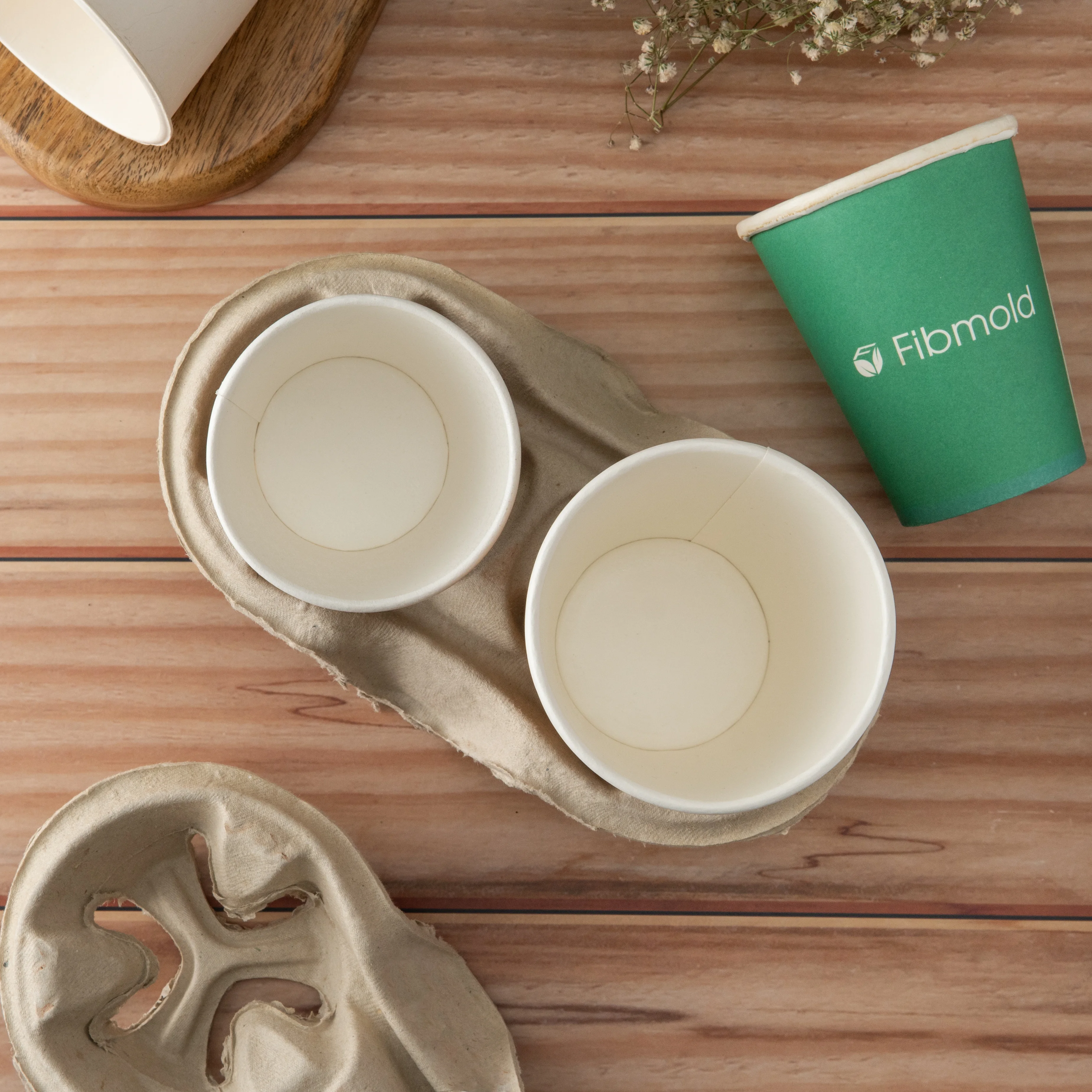Imagine the world when all food containers, delivery boxes, and wrappers of products can just dissolve into the soil without any plastic, toxins, or anything unnatural.
This is no longer a far off dream. It is already happening throughout India: this vision is not fueled by costly new technologies, but the agro-waste that is abundant in the country, particularly Bagasse Packaging, the fibrous waste remaining after the sugarcane juice extraction. India is now taking steps towards an e-packaged, plastic-free future with the help of this natural resource through innovative solutions of eco-friendly F&B packaging, Molded Fibre, and Compostable Packaging.
The Plastic Predicament: Why India Must Act Now
India contributes more than 9.3 million tonnes of plastic waste annually to the world, rendering it among the major polluters in the world. Shockingly, only about 60% is recycled. The rest blocks drain, pollutes rivers, contaminates soil and contributes to over-crowded landfills.
In cities, 77 percent of waste is thrown onto the open landfills without any proper disposal mechanisms, thus posing long-term environmental as well as health risks.
As plastic packaging is taking over the food and retail sectors, the necessity of an environmentally friendly alternative has never been that great.
To make matters worse, the 2024 policies of FSSAI regarding environmentally friendly food packaging and the increase in the number of environmentally aware consumers also means that businesses have no option but to adjust fast or lose face.
Bagasse: India’s Agricultural Waste Hero
Add Bagasse Packaging - a natural and strong substitute created out of agricultural waste. More than 500 million tonnes of crop residues are generated in India every year in the form of sugarcane bagasse, wheat straw, rice husks, and bamboo fibers. Nevertheless, there is a significant volume that gets burnt annually, leading to extreme air pollution and wastage of precious resources.
Rather than burning, turning Bagasse Packaging into Sustainable Packaging is one of the game changers. Sugarcane leaves, deserted fibre, bagasse, are plentiful and biodegradable, which is why it is a promising raw materials in Molded Fibre products. By using a sophisticated pulping and molding technology, this agricultural waste is transformed into strong, temperature-resistant and completely Compostable Packaging containers that would be equal to plastic in terms of strength and utility.
Real-World Impact: From Farm to Packaging Line
Fibmold, one of the pioneers in Sustainable Packaging in India, is one of the companies that have taken the lead in this.
Their hi-tech plant in Maharashtra can process 8-10 tonnes of agricultural fibres per day transforming it into creative, green packaging options in all industries.
Diverse Solutions That Showcase Bagasse’s Potential
This flexibility enhances industries, which provide a scaled, cost-effective solution that allows companies to fulfill Extended Producer Responsibility (EPR) requirements, as well as satisfy conscious consumers.
- Food Packaging: Food tray, cup and container solutions, biodegradable tray, microwave-safe tray solutions targeting the food delivery, QSR and hospitality segments.
- Pharma Packaging: Pharma Injectables Tray with Compostable trays including Fibmold Pharma Injectables Tray sterile and shielding plastic.
- Consumer Goods: Premium and zero-waste cosmetic insert and chocolate tray.
- Electronics: Strong, sustainable protective packaging of electronics, created out of recycled agro-fibres.
Why Compostable Packaging Matters: Beyond Waste Reduction
The use of compostable packaging instead of packaging is more than simply the reduction of waste. It:
Biodegrade in 90-180 days, and does not pollute but fertilizes soil.
Limits the emission of greenhouse gases that are associated with landfills.
Facilitates the creation of sustainable brand recognition for businesses in the international markets.
Helps businesses to hedge against regulatory changes and unstable consumer demands.
The early adopters also have a competitive advantage, not to mention that they are a part of a circular economy.
How Fibmold Is Leading the Charge?
The continuation of innovation, sustainability and quality makes Fibmold the leader of the revolution of Sustainable Packaging in India. Their speed in developing prototypes (2-3 weeks) helps the brands redesign packaging within a short time, facilitating the agility in the dynamic market. Their PrimoPack consumer friendly line has provided user-friendly, anti-leak, and Compostable Packaging beverage cups that appeal to the rising consumer of the eco-conscious urban crowd.
Supported by such certifications as BRCGS, USFDA and CIPET, Fibmold takes the responsibility of producing products that are of high food safety and environmental norms. They also focus on recycling water and investing in renewable energy sources, and this is part of a holistic sustainability strategy.
Conclusion: Embracing India’s Agro-Waste Opportunity for a Greener Tomorrow
Agro-waste is not a problem for India, but an opportunity. Through bagasse packaging and the development of molded Fibre technology, companies will lower their pollution level of plastic without affecting their performance or cost.
A similar experience with Fibmold helps to realize that sustainable packaging is not something we can expect in the future but something we need today.
The industries, policymakers, and consumers have a role to play in this revolution of plastic-free, and now is the time to join hands and start living without it.
Join the movement. Learn what Fibmold is doing to develop greener alternatives on the site of Fibmold, www.fibmold.com.
Follow Fibmold on Instagram and LinkedIn to be part of India’s journey towards a cleaner, greener future.






